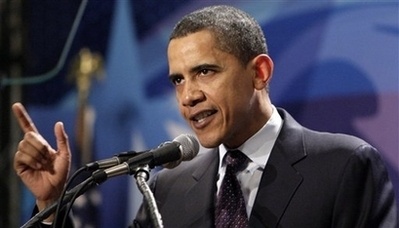Deal on Mich., Fla. unlikely before June
(Agencies)
Updated: 2008-04-07 08:48
Updated: 2008-04-07 08:48
WASHINGTON -- A deal to allow delegates from Florida and Michigan to participate at the Democratic National Convention is unlikely before summer, party chief Howard Dean said Sunday.
Dean said that was partly because presidential candidates Hillary Rodham Clinton and Barack Obama want to focus on the coming round of contests. Next on the schedule are Pennsylvania on April 22 and Indiana and North Carolina on May 6, followed by several other states and US territories. Voting ends June 3.
|
|
But he continued to express confidence that an agreement would be reached to seat delegates from both states.
"It's going to take some time to work that out because these candidates are really focused on these primary battles in ... Pennsylvania and West Virginia and North Carolina and so forth and so on," Dean told "Face the Nation" on CBS. "And so it's going to take some time to work this out.
"But I think we can work it out, and I want to work it out," he said.
During a separate interview on ABC's "This Week," Dean said "I agree" when asked whether a solution will have to wait until after the last Democratic contests in South Dakota and Montana on June 3, and after the remaining superdelegates have said which candidate they support.
The Democratic National Committee stripped Florida and Michigan of their convention delegates -- a total of 366 -- for holding primaries too early in the process, violating party rules. Clinton and Obama agreed not to campaign in either state, and Obama joined other candidates in removing their names from Michigan's ballot.
Clinton won both primaries, and she and her campaign have been pressing for those results to be recognized. Obama objects.
Both states have abandoned plans to hold do-over contests but are demanding to be included in the process. Dean has had talks with officials from both states, but says Obama and Clinton must be part of any deal.
The former first lady trails Obama both in the popular vote and in the pledged delegates won in primaries and caucuses, and has said she will take her fight for the nomination to the August convention in Denver if necessary.
Dean also has urged the superdelegates -- the nearly 800 elected and other Democratic officials who are free to vote for whomever they choose -- to take a position soon after the voting ends to avoid a convention fight. More than half the superdelegates have said which candidate they will support.
With only two candidates remaining, Dean said the nominee should be evident by June 1.
"Unless this is a dead heat, there's no reason to go to Denver, if the unpledged delegates will make their preferences clear and the voters will make their preferences clear, which they will by the third of June, then we'll know who our nominee is and we can win," Dean said on CBS.
|
||
|
||
|
|
|
|
